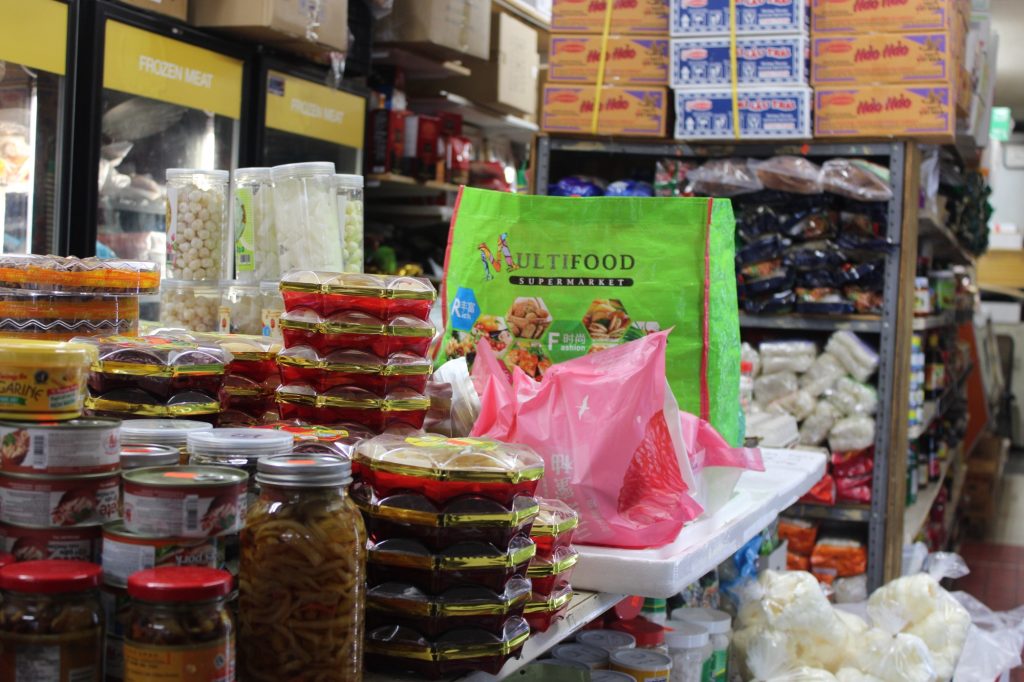When entering the Saigon Meats and Vegetables market in Ottawa’s Chinatown, a bell tied to the doorway will announce your entrance. Soon after, you’ll hear a timid, chirping hello from behind the register. Hong Pham, the owner, runs the business by herself and has shouldered most of the strain of being a business owner in a competitive market for the past 20 years.
The small grocery store is packed tightly with shelves containing products from all over Asia, organized neatly and awaiting Pham’s loyal customers. At the back of the store, meats and seafood can be found at an attached butcher counter.
Small independently-owned grocery stores such as Saigon Meats and Vegetables are facing unprecedented challenges as they attempt to stay afloat in Ottawa. Amid rising costs, concerning crime rates, competition from massive grocery conglomerates and an increasingly difficult economic landscape, the mere existence of these culturally diverse markets is threatened.
After months of uncertainty about how tariffs imposed by the U.S government would affect local businesses, small business owners are still wary of the shifting landscape.
The challenges of competing with large retail chains are felt very deeply by Pham. With a lack of help, rent and utility bills on the rise and crime, as well as parking problems, driving customers away, she fears she may have to close the store soon.
“They opened very big, big stores,” said Pham. “And some people, they don’t come to Chinatown anymore because without a parking lot, it’s very hard. It’s hard to compete. It’s all very hard right now. Chinatown changed a lot and even regulars don’t come as often anymore.”

Pham said the success of small businesses is vital for maintaining diversity in the market and ensuring a wide variety of products. She also voiced concerns about the growing trend of unregulated home-based businesses selling products online without any overhead costs, which she believes puts even more pressure on brick-and-mortar shops.
“I pay rent, I pay taxes, I follow all the rules. But people buying in bulk from home and selling it online, they don’t have to deal with any of that. It’s not fair, it’s not fair,” said Pham.
Concerns about the economic landscape are similar at a Persian grocery store in the same neighbourhood, which has been operating for nearly 40 years. The store, Shiraz Food Market, specializes in products from Iran and European countries.
The market is a family business that has been run by different family members across decades. The current owner, Mina Patoo, said that the main challenge for her has been keeping prices stable. The slow pace of recovery from the COVID-19 pandemic, coupled with economic inflation, means customers are more cautious than ever about spending.
“When the economy is bad, people can’t afford as much,” said Patoo. “Wholesale nuts, which used to sell well and give us a lot of profit, aren’t moving like before. But we do what we can to keep prices within a range that our community can afford.”
Despite these challenges, Patoo said the community is what keeps her going.
“I love people, I love our community,” said Patoo. “We have fun with our customers. You know, sometimes if they have no money, we just tell them to pay later. We work together. So it’s a lot of fun knowing everybody, sharing sweets, talking about life. We laugh and we joke. It’s kind of like family.”
Patoo said she feels strongly that in times of economic crisis, it’s important to support the local economy by buying from locally owned businesses instead of relying on big chain stores.
“I think this situation with the tariffs is a wake-up call,” said Patoo. “That we need to rely on ourselves and start supporting the small businesses around us. I never shopped at Costco. They always come here and offer me a card, but I said I’d rather spend my money locally. I know it’s less money to spend there, but if we all start to buy local, the prices eventually will come down.”
Currently, the biggest concern for Patoo is the rising crime rate in the once safe neighbourhood. She said there isn’t enough investment on keeping a strong police presence on Somerset so that customers and business owners can feel safe.
“Sometimes it’s very scary,” she said. “I called the cops a few times to remove homeless people from the store. But I try to be very friendly with them. A few, like four or five of them, come to the store, and I said, ‘Don’t yell and don’t cause trouble, I’ll feed you.’ But it’s getting out of hand. Two weeks ago, I saw people doing drugs in the back of the store. And I didn’t get cops involved because I was afraid. Later on, they’d come and break the windows. People are afraid to come to Chinatown after seven o’clock now.”
As more and more customers opt for convenience, either through larger chains or online purchases, the question remains – how can small, family-owned businesses compete? Many small business owners are hopeful that the community will continue to support them, and that the solution lies in loyalty.
“I think they’re already doing their part very much,” said Patoo. “They come here and buy something – the next day they don’t buy it anywhere else. They’re very loyal. Canadians are very loyal people. And that’s why I think we will be okay.”
The La Tiendita grocery store in Chinatown exclusively carries products from Central and Latin America and has served the local community in tandem with a restaurant called La Cabaña for over 30 years. But now, inflation and tariffs are putting a strain on their ability to keep prices competitive.
Mayra Scott, from the Dominican Republic, has been working at La Tiendita for four years. She said that despite rising costs, customers continue to shop at the store to buy products from their home countries, many of which can’t be found anywhere else in Ottawa. But keeping prices affordable is still a concern amid tariffs and inflation.
“We try to keep competitive prices,” said Scott, “even though some products are getting more expensive. But people buy them because they are from their home countries, and they miss the taste of home.”
